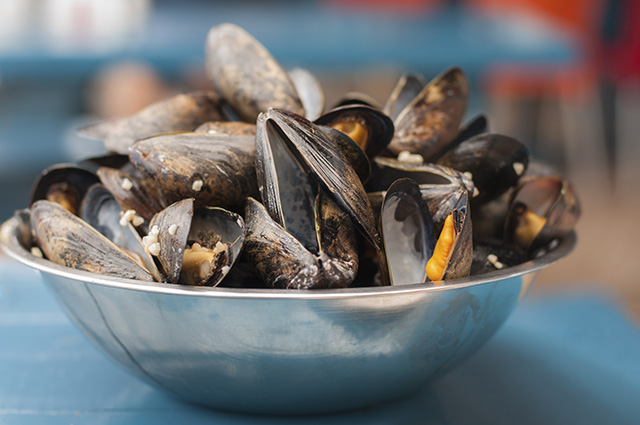WARNING: Shellfish are now testing positive for opioids
06/25/2018 / By Vicki Batts

The opioid epidemic in the United States has become so prolific that now even local shellfish are testing positive for Big Pharma’s most profitable (and most addictive) class of drugs. In Washington state, the Department of Fish and Wildlife recently found that opioids are making their way into the water and are affecting marine life.
The researchers say their startling find indicates that “a lot of people” are using opioid medications in Seattle’s Puget Sound area. The findings are prompting serious concerns about opioid abuse and how it will ultimately affect the environment. Further, it raises questions about what other undisclosed drugs and toxins could be lurking in food and water supplies nationwide.
Opioids in the water
Mussels from the Emerald City’s coast were used as a barometer for water pollution — and levels of the addictive painkillers are now high enough for the delicate shellfish to test positive for the drugs. While mussels are not able to metabolize opioids, some fish can actually become addicted.
Pretty soon, you may even need a prescription to eat shellfish in the U.S., if opioid abuse continues to climb.
Mussels are known as “filter-feeders,” which means they filter water for nutrients and nourishment. Because of this, they are prone to storing toxins in their tissues — which makes them great as an “indicator species.”
The BBC reports that scientists strategically placed clean mussels in 18 locations around the Puget Sound. Three months later, the shellfish were collected and examined. Traces of the opioid oxycodone were high enough to be detected from three groups of mussels.
Mother Nature's micronutrient secret: Organic Broccoli Sprout Capsules now available, delivering 280mg of high-density nutrition, including the extraordinary "sulforaphane" and "glucosinolate" nutrients found only in cruciferous healing foods. Every lot laboratory tested. See availability here.
While the amounts were not high enough to give human consumers a buzz, the experts rightfully note that it is still indicative of a major problem.
Jennifer Lanksbury, a biologist at the Washington Department of Fish and Wildlife, commented on the findings. She stated, “What we eat and what we excrete goes into the Puget Sound.” The biologist added that it’s clear a lot of people in the area are using oxycodone.
“Hopefully our data shows what’s out there and can get the process started for cleaning up our waters,” Lanksbury contended further.
What else is contaminating food and water?
The sad fact of the matter is that opioids are not the first, nor the only, drugs to contaminate water and food in the U.S. Traces of hormonal birth control in the water supply is a well-documented issue, but as the Washington Department of Fish and Wildlife found — there are many other unsavory substances hiding all around us.
As 10TV reports:
When humans ingest opioids like oxycodone, they ultimately end up excreting traces of the drugs into the toilet. Those chemicals then end up in wastewater. And while many contaminants are filtered out of wastewater before it’s released into the oceans, wastewater management systems can’t entirely filter out drugs. Thus, opioids, antidepressants, the common chemotherapy drug Melphalan — the mussels tested positive for all of them.
While the presence of opioids in shellfish is no doubt alarming, the painkillers may well be the least of our problems.
Untold numbers of prescription medications — whether they be antibiotics, painkillers, antidepressants or what have you– end up being flushed down the toilet (literally) every year. All of these drugs end up in the water supply, which means millions of people are micro-dosing themselves with a chemical cocktail every time they consume tap water.
These drugs could pose a serious threat to humanity, with the potential to alter fertility, gender expression and biology in general — and that’s just the contamination our environment has suffered at the hands of Big Pharma, never mind the agribusiness and biotech industries.
Learn more about what substances could be threatening your health at Toxins.news.
Sources for this article include:
Tagged Under: badpolllution, Big Pharma, chemicals, clean water, contamination, environment, epidemica, food supply, groceries, harvest, Opioids, Seattle, shellfish, toxic food




















